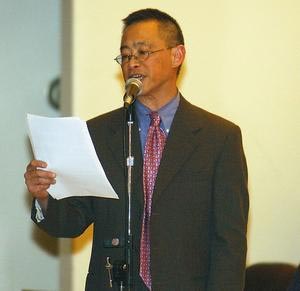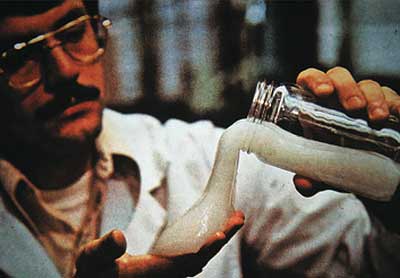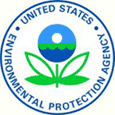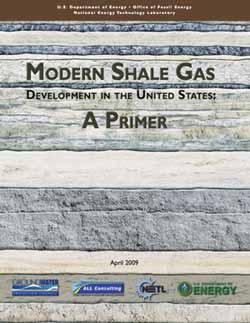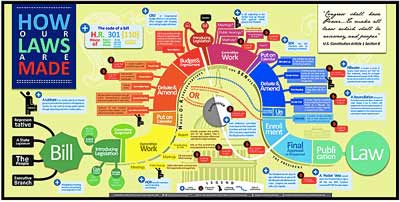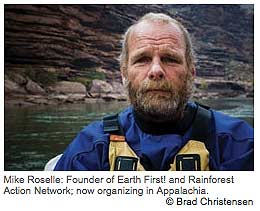Biblio
The New York-based Toxics Targeting went through the Department of Environmental Conservation’s own database of hazardous substances spills over the past thirty years.
They found 270 cases documenting fires, explosions, wastewater spills, well contamination and ecological damage related to gas drilling.
Derrick Ek. "Gas drilling concerns aired at DEC hearing," Nov 19, 2009. Corning Leader.
Ithaca environmental activist Walter Hang details a history of problems caused by the oil and gas industry in New York State.
Abstract:
As the hunt for important unconventional gas resources in America expands, an increasingly popular method of wringing resources from stubborn underground formations is a process called hydraulic fracturing – also described as hydrofracturing, fracking, or fracing – wherein fluids are pumped at high pressure underground to fracture a formation and release trapped oil or gas.
Operators have fraced wells for more than fifty years, but the practice has recently grown rapidly in areas like the Barnett Shale of North Central Texas and the Marcellus Shale beneath Pennsylvania, New York, and other Appalachian states.
This Article describes the process of hydraulic fracturing, existing studies of the environmental effects of hydraulic fracturing, and the laws and regulations that apply to the practice. It argues that there is no direct federal regulation of the fracing process (the pumping of fluids into a wellbore), that court guidance in this area is limited, and that state regulations differ substantially.
Although other general regulations apply to the practice, the Article argues that in light of the dearth of regulation specific to fracturing in some areas, more study of the potential environmental and human health effects of fracing is needed in order to determine whether current regulation is sufficient. The EPA completed a partial study in 2004, but this Article focuses on the deficiencies of that study and calls for a new, national, scientific study of the practice.
Conclusion:
...no one knows the full range of effects because they have not been adequately researched. The EPA’s report is the most comprehensive to date, but was part of a highly-charged political process and was never completed, because the EPA concluded, perhaps prematurely, that further study was unnecessary.
Furthermore, the report investigated fracing in only one type of formation – coalbeds – and assessed the impacts of one stage of fracing, failing to seriously consider concerns such as groundwater depletion and surface disposal of fracing waste.
The highest regulatory priority for fracing should be the instigation of a federal, scientifically rigorous report prepared by the National Academy of Sciences or a similar “neutral” body and a simultaneous regulatory risk-limiting mechanism.
Next, based on the data contained within this report, and given the risks of certain types of fracing, Congress should consider reversing its 2005 exemption of fracing from the Safe Drinking Water Act; it should not wait to commence this process pending the completion of the report, although the report will be essential for future statutory and regulatory decisions.
...In the rush to extract essential resources, a process which itself contributes to human wellbeing, other aspects of human wellbeing – the quality of the environment and public health – must not be cast aside as a mere impediment to progress.
See: Oil & Gas Accountability Project (OGAP)
See also: Pew Campaign for Responsible Mining
Congressional Research Service. Anthony Andrews, Coordinator, Specialist in Energy and Energy Infrastructure. CRS Report for Congress Prepared for Members and Committees of Congress. October 30, 2009. 53 pages.
"...The saline “flowback” water pumped back to the surface after the fracturing process poses a significant environmental management challenge in the Marcellus region."
The Congressional Research Service (CRS) serves shared staff to congressional committees and Members of Congress. CRS experts assist at every stage of the legislative process — from the early considerations that precede bill drafting, through committee hearings and floor debate, to the oversight of enacted laws and various agency activities.
See: What is the Congressional Research Service?
It is ironic that the following report was about to be published on April 20, 2010, the day the BP Deepwater Horizon platform caught fire, resulting in the largest oil spill in U.S. history.
See also:
Humphries, Marc, Robert Pirog, and Gene Whitney. U.S. Offshore Oil and Gas Resources: Prospects and Processes. Washington, D.C.: Congressional Research Service, April 26, 2010. (PDF).
Additional authors of Unconventional Gas Shales:
Peter Folger
Specialist in Energy and Natural Resources Policy
Marc Humphries
Analyst in Energy Policy
Claudia Copeland
Specialist in Resources and Environmental Policy
Mary Tiemann
Specialist in Environmental Policy
Robert Meltz
Legislative Attorney
Cynthia Brougher
Legislative Attorney
House Republican Leader John Boehner's blog. Posted by Kevin Boland on July 14th, 2009.
Boehner said, "Democrats talk about creating jobs - but Speaker Pelosi’s national energy tax will cost 2.5 million American jobs each year and will punish every American who dares to flip on a light switch or drives a car.
Democrats are also floating a half-a-trillion dollar tax hike on small businesses as part of their trillion-dollar government-run health care proposal, another sure job-killer."
Boehner was first elected to Congress in 1990, representing a district that includes parts of the suburbs of Cincinnati and Dayton. As a member of Gang of Seven, a group of G.O.P. freshman reformers who demanded that the names of colleagues who had overdrafts at the House bank be made public, Mr. Boehner angered Congressional veterans.
But he quickly became a top lieutenant of Newt Gingrich, the Republican leader in the House who became speaker when the party took control in 1994. Mr. Boehner helped to draft and champion the party's Contract With America. Read More...
For the other side of the Energy Debate, see Speaker of the House Nancy Pelosi's (D-CA) Newsroom Web Page, and her blog, The Gavel-Draining the Swamp.
Daniel J. Soeder and William M. Kappel. "Water Resources and Natural Gas Production from the Marcellus Shale". U.S. Department of the Interior, Fact Sheet 2009-3032, May 2009. U.S. Geological Survey (USGS), 2009. (PDF)
See Figure 7: Example of a gel used in hydrofracturing to carry proppant into a fracture. Photograph by Daniel Soeder, USGS. Page 5.
See also:
Milici, Robert C. (2005). Assessment of undiscovered natural gas resources in Devonian black shales, Appalachian basin, eastern U.S.A.: American Association of Petroleum Geologists Abstracts Volume for the AAPG 2005 Annual Convention, p. A93.
Milici, Robert C. and Christopher S. Swezey. (2006) Assessment of Appalachian Basin Oil and Gas Resources: Devonian Shale–Middle and Upper Paleozoic Total Petroleum System.
"The U.S. Geological Survey (USGS) recently completed an assessment of the technically recoverable undiscovered hydrocarbon resources of the Appalachian Basin Province. The assessment province includes parts of New York, Pennsylvania, Ohio, Maryland, West Virginia, Virginia, Kentucky, Tennessee, Georgia and Alabama."
Editing by Daniel Trotta and Mohammad Zargham.
"U.S. government scientists have for the first time found chemical contaminants in drinking water wells near natural gas drilling operations, fueling concern that a gas-extraction technique is endangering the health of people who live close to drilling rigs."
Letter sent to the NYS Dept. of Environmental Conservation (NYSDEC) by the U.S. Environmental Protection Agency (EPA). Written in public response to the Draft Supplemental Environmental Impact Statement (dSGEIS). Dec. 30. 2009.
EPA believes that the analysis and discussion of cumulative and indirect impacts in the dSGEIS need to be significantly expanded. Even with its generic format, the dSGEIS should discuss the impacts that may result from past, present, and reasonably foreseeable future projects as well as those impacts associated with gas drilling and hydro fracturing that may occur later in time or at a distance from the immediate project site.
See: Walter Hang's Letter to DEC Commissioner Grannis Regarding Additional Natural Gas Hazards
The Primer provides regulators, policy makers, and the public with an objective source of information on the technology advances and challenges that accompany deep shale gas development and describes the importance of shale gas in meeting the future energy needs of the United States.
Protecting and conserving water resources is an important aspect of producing shale gas, and this effort was championed by the Ground Water Protection Council through a cooperative agreement with NETL.
U.S. Department of Energy (DOE), Office of Fossil Energy and National Energy Technology Laboratory. Modern Shale Gas Development in the United States: A Primer. Washington, D.C. U.S. Department of Energy (DOE). April 2009. 116pages. [PDF-5.11MB].

Sen. Robert Casey
S.1215. 6/9/2009. `Fracturing Responsibility and Awareness of Chemicals (FRAC) Act'. Sponsor: Sen. Casey, Robert P., Jr. [PA], Co-Sponsors in alphabetical order: Sen. Cardin, Benjamin L. [MD], Sen. Feinstein, Dianne [CA], Sen. Gillibrand, Kirsten E. [NY], Sen. Sanders, Bernard [VT], Sen. Schumer, Charles E. [NY].
Referred to Senate committee. Status: Read twice 6/9/2009 and referred to the Committee on Environment and Public Works.
See House Bill: H.R. 2766. 111th Congress. Rep. Diana Degette. Rep. Maurice Hnchey, et al. Fracturing Responsibility and Awareness of Chemicals Act of 2009 - Amends the Safe Drinking Water Act to: (1) repeal the exemption from restrictions on underground injection of fluids near drinking water sources granted to hydraulic fracturing operations under such Act; and (2) require oil and gas companies to disclose the chemicals used in hydraulic fracturing operations. (6/9/2009).

Rep. Diana Degette
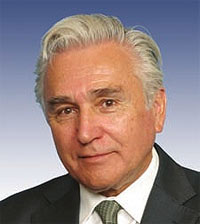
Rep. Maurice Hinchey
See: CIVICA: Centrist & Independent Voters in Coalition for America. "How out Laws are Made." 2011-04-09.
Roselle—cofounder of the Rainforest Action Network and Earth First!—offers a memoir of his career in radical activism—from teenage Yippie to career environmentalist, who admits he shares his generation's complicity in creating the mess we are in today and is now fighting against mountaintop-removal coal mining in Appalachia.
Video excerpt from interview by Michael C O'Connell (hawriverfilms) of Mike Roselle, from a jail cell in West Virginia. Mr. Roselle has protested mountaintop removal coal mining in West Virginia. Interview shot for upcoming project by Haw River Films.
Non-Violent Civil Disobedience has been an option for citizens to attempt to change laws that are considered unfair or are not being enforced by government regulatory agencies.
See: Student Disrupts Government Auction of 150,000 Acres Of Wilderness For Oil & Gas Drilling.
See: U.S. Fines Mine Owner $20 Million for Pollution
See: Gas Drillers Plead Guilty to Felony Dumping Violations
One Year Update
Tim is facing ten years in prison on two felony charges for derailing an illegal sale of public land from the outgoing Bush administration to private oil and gas developers.
A full year after I disrupted the BLM oil and gas auction, I still have no regrets for my actions. The legal case against me continues.
This kind of trial is nothing but intimidation-- and the best answers to intimidation are joy and resolve. That’s what we’ll need in Utah.
Read joint letter explaining the urgent need for solidarity on February 28.
See: "Student Disrupts Government Auction of 150,000 Acres Of Wilderness For Oil & Gas Drilling."
See: As climate crime continues, who are we sending to jail? Tim DeChristopher?
Congressman Scalise serves on the Subcommittee on Energy and Environment. Monday, December 7, 2009.
"Regulation of green house gases will put millions of American jobs in danger."
Washington, DC -- Congressman Steve Scalise (R-LA) today made the following statement after the U.S. Environmental Protection Agency (EPA) announced that they have declared carbon dioxide (CO2) along with five other gases as dangerous pollutants.
“The EPA's decision today is another example of this Administration’s liberal agenda that is killing jobs. What makes the EPA’s decision even more reckless is the fact that it is based on corrupt science that has recently been exposed by the ‘Climate gate scandal,’” Scalise said.
“At a time when the American people are asking ‘where are the jobs,’ the Obama administration continues to promote policies that run jobs out of our country while adding unprecedented debt onto the backs of our children and grandchildren.”
Residents near gas leak still live in fear.
You never know from day to day what is going to happen," Mrs. McGee said of their situation. "You have no idea how a gas well will affect your life."
Everything now, from shopping to doctors' appointments and vacations, have to be planned around what is happening with the gas-level readings in their home, she said. "Our lives are not our own."
They have 100 percent readings of the lower explosive levels every week, Mrs. McGee said. They are being told they are safe, as long as the house is vented but are worried about what would happen if the vents accidentally are blocked, she said.
When the McGees first experienced what they call a "black goo" in their water, she said, "they tried to convince us it was perfectly normal."
Abrahm Lustgarten of ProPublica takes FLYP readers on a journey through Sublette County, Wyoming to take a tour of the wells and hear the voices of residents and experts on the issue.
Anecdotal evidence has been criticized by Gas Industry advocates in the debate over the inadequately funded EPA study. There have been many anecdotal reports of fouled wells and air pollution, unknown risks to chemical exposure and hydrogen sulfide, and methane leaking from gas compressors captured on infrared film.
Cornell professor Robert Howarth has criticized claims that natural gas is "clean-burning". There have also been no studies on the cost benefits of gas drilling.
See: Drilling for Truth and other articles by Lustgarten.
In a 5-4 decision, the Supreme Court held that environmentalists' lacked standing to challenge a Forest Service regulation limiting public involvement in timber sales decisions. Priscilla Summers v. Earth Island Institute, et al.,__U.S.__(No. 07-463, March 3, 2009).
The decision found that respondents’ argument that they have standing because they suffered procedural injuryi.e., they have been denied the ability to file comments on some Forest Service actions—fails because such a deprivation without some concrete interest affected thereby is insufficient to create Article III standing.
Justice Scalia, writing for the majority, stated "Accepting an intention to visit the National Forests as adequate to confer standing to challenge any Government action affecting any portion of those forests would be tantamount to eliminating the requirement of concrete, particularized injury in fact."
The following is a link to the Court's opinion: http://www.supremecourtus.gov/opinions/08pdf/07-463.pdf







